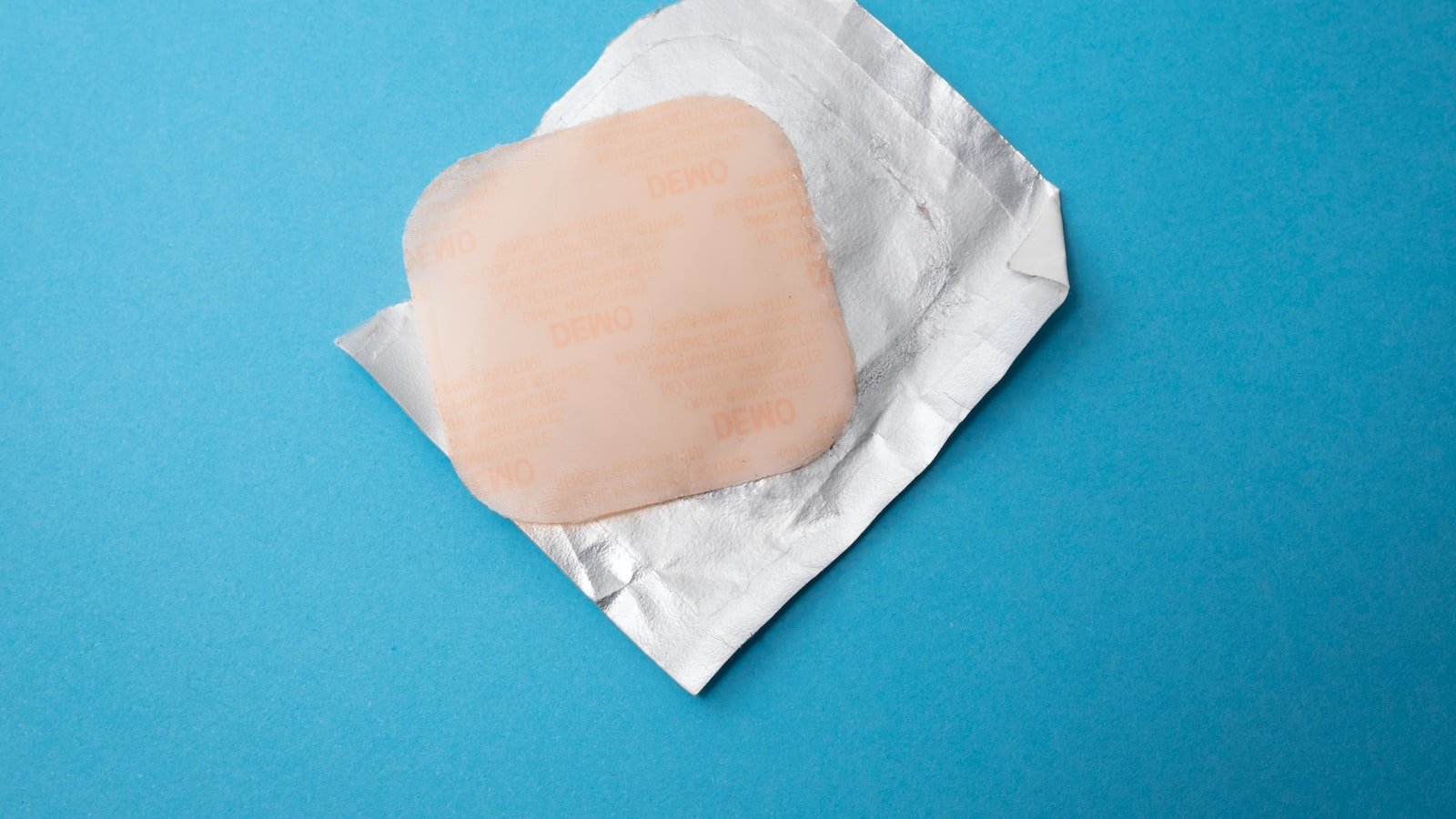Unlocking the secrets woven within our bodies, hormones silently orchestrate the symphony of life from birth until our very last breath. These remarkable chemical messengers play an indelible role in our overall well-being, whether we acknowledge their presence or not. From our earliest days as fragile infants, to the tumultuous adolescence that shapes our journeys, and through the graceful march into the twilight of old age, hormone health traverses with us every step of the way. In this comprehensive guide, we embark on an illuminating expedition that unravels the mysteries of hormone health throughout the lifespan, offering a beacon of knowledge for all who seek to understand the delicate equilibrium these silent guardians maintain within us. So, let us delve into this captivating narrative, where science and curiosity collide, as we venture deep into the labyrinthine wonder of hormonal equilibrium, unearthing the profound significance it holds for our existence.
Understanding Hormonal Changes During Puberty: What to Expect and How to Navigate Them
Hormonal Changes During Puberty: What to Expect and How to Navigate Them
As individuals progress through the different stages of life, their bodies undergo various changes, and one of the most significant transformations occurs during puberty. Puberty is a natural and essential part of human development, marking the transition from childhood to adulthood. During this time, the body experiences a surge in hormone production, leading to physical, emotional, and psychological changes. Understanding these hormonal changes can help both teenagers and their parents navigate this transformative period with knowledge and confidence.
1. Physical Changes: Hormonal changes during puberty bring about noticeable physical transformations. These can include the growth of pubic and underarm hair, the development of breasts in girls and deepening of the voice in boys, and the growth spurt that results in increased height and weight. Acne may also be a common occurrence during this time, as hormone fluctuations can stimulate oil production, leading to breakouts.
2. Emotional and Psychological Changes: Along with the physical changes, teenagers may also experience emotional and psychological shifts during puberty. Mood swings, heightened sensitivity, and increased irritability are typical due to the fluctuating levels of hormones in the body. It is essential for both teenagers and their families to recognize and navigate these emotional changes with patience, understanding, and open communication.

Maintaining Hormone Balance in Adulthood: Strategies for Optimal Health and Well-being
Maintaining hormone balance is crucial for optimal health and well-being throughout adulthood. As we age, hormonal fluctuations become more common, which can lead to a range of physical and emotional changes. However, there are several strategies that can help support hormone health and promote overall wellness.
First and foremost, a balanced diet plays a pivotal role in maintaining hormone balance. Incorporate a variety of nutrient-rich foods, such as fruits, vegetables, whole grains, and lean proteins, into your daily meals. Additionally, prioritize foods that are known to support hormone regulation, such as cruciferous vegetables, flaxseeds, and fatty fish. These foods are rich in phytoestrogens, omega-3 fatty acids, and other nutrients that can help regulate hormone levels.
Regular exercise is another important aspect of hormone health. Engaging in physical activity not only helps manage stress levels but also enhances hormonal balance. Aim for at least 30 minutes of moderate-intensity exercise most days of the week. Whether it’s jogging, cycling, swimming, or practicing yoga, find an activity that suits your preferences and commit to it consistently. Exercise promotes the release of endorphins, which aid in stress reduction and support hormonal harmony.
In addition to a healthy diet and regular exercise, stress management is essential for maintaining hormone balance. Chronic stress can disrupt the delicate hormonal equilibrium, leading to imbalances and a range of health issues. Incorporate stress reduction techniques into your daily routine, such as meditation, deep breathing exercises, or engaging in hobbies that bring you joy. Getting enough sleep is also important, as sleep deprivation can significantly impact hormone production and regulation.
Lastly, consider incorporating natural supplements or herbs into your routine, which can support hormone balance. Consult with a healthcare professional to determine which supplements may be suitable for you. Addressing any underlying health conditions or imbalances is also crucial for maintaining hormone health. Regular check-ups with a healthcare provider can help identify any potential issues and allow for timely intervention.
By adopting these strategies and making mindful choices, you can maintain hormone balance throughout adulthood, supporting optimal health and overall well-being. Remember, hormone health is a lifelong journey, and taking proactive steps to prioritize it will pay off in the long run. Stay informed, listen to your body, and embrace a holistic approach to nurturing your hormonal equilibrium.
Hormone Health in Menopause: Coping with Symptoms and Exploring Treatment Options
Ah, the inevitability of menopause, a phase that every woman will eventually experience. During this natural transition, hormone levels fluctuate, leading to a myriad of physical and emotional changes. Coping with these symptoms and exploring treatment options is crucial for maintaining hormone health and overall well-being. Luckily, there are various strategies and interventions that can help navigate this new phase of life with grace and resilience.
When it comes to coping with menopausal symptoms, it is essential to build a toolbox of self-care practices that promote hormone balance. Regular exercise is a powerful tool for managing symptoms such as hot flashes, mood swings, and weight gain. Incorporating a mix of cardiovascular activities, strength training, and mindful exercises like yoga or Pilates can improve both physical and emotional well-being. Additionally, adopting a nutrient-dense diet rich in fruits, vegetables, whole grains, and lean proteins can support hormone health and alleviate symptoms. Foods like soy, flaxseed, and various herbs can also provide natural relief. Lastly, stress reduction techniques, such as meditation or deep breathing exercises, can help manage the emotional challenges that often accompany menopause.
-
Regular exercise: Cardiovascular activities, strength training, yoga, Pilates
-
Nutrient-dense diet: Fruits, vegetables, whole grains, lean proteins, soy, flaxseed, and herbs
-
Stress reduction techniques: Meditation, deep breathing exercises

Promoting Hormone Balance in Older Age: Key Factors for Healthy Aging
As we age, hormonal changes become a natural part of the ageing process. Promoting hormone balance is vital for healthy ageing, as imbalances can lead to a variety of health concerns. In this comprehensive guide, we will explore the key factors to consider in maintaining optimal hormone health throughout the lifespan. By understanding and addressing these factors, we can maximize our chances of experiencing healthy ageing and enjoying a high quality of life.
1. Nutrition: A balanced diet plays a crucial role in supporting hormone health. Ensure your meals include a variety of nutrient-rich foods, such as fruits, vegetables, whole grains, lean proteins, and healthy fats. Incorporating foods rich in omega-3 fatty acids, like salmon and walnuts, can be particularly beneficial for hormonal balance. Additionally, limit your consumption of processed foods, sugary snacks, and excessive caffeine, as they can disrupt hormonal equilibrium.
2. Exercise: Regular physical activity not only helps maintain overall health but also promotes hormone balance. Engaging in both cardiovascular exercises, such as brisk walking or cycling, and strength training can positively impact hormone levels. Aim for at least 150 minutes of moderate-intensity aerobic activity or 75 minutes of vigorous aerobic activity per week. Don’t forget to include muscle-strengthening activities, like lifting weights or yoga, twice a week to enhance hormonal health.
Insights and Conclusions
As we bring this journey through the intricate web of hormone health to a close, we hope you feel equipped with an in-depth understanding of the role hormones play in our lives. They are the silent symphony orchestrating the dance of our bodies, navigating us through the myriad stages of life.
From the tender beginnings of infancy, where hormones set the foundation for growth and development, to the tumultuous teenage years, where these powerful messengers become amplified, hormones are the chameleons of our internal ecosystem.
Through the fertile years of womanhood and the peaks and valleys of reproductive cycles, hormones keep us synced with the rhythmic ebb and flow of life itself. They guide us through the labyrinth of emotions and unveil the marvel of our bodies’ ability to create life.
As we journey further into adulthood, hormones evolve yet again, influencing our metabolism, sleep patterns, and overall well-being. They become the elusive magicians, orchestrating our energy levels, moods, and even our capacity for love and connection.
Finally, as we gracefully step into the golden years, hormones continue to play their part, reminding us of the chapters we have lived and the wisdom we have gained. Their subtle shifts might come with their own challenges, but they also bring with them a newfound sense of acceptance, self-discovery, and resilience.
So, dear reader, as you conclude this comprehensive guide to hormone health, let us embrace the complex dance that occurs within us each day. Let us honor these enigmatic molecules that shape our existence. And let us approach our own hormone health with curiosity, compassion, and a sense of wonder.
May this knowledge serve as a compass on your journey—a guide that empowers you to navigate the twists and turns, to appreciate the intricacies, and to find harmony within the ever-changing symphony of hormone health throughout the lifespan.


